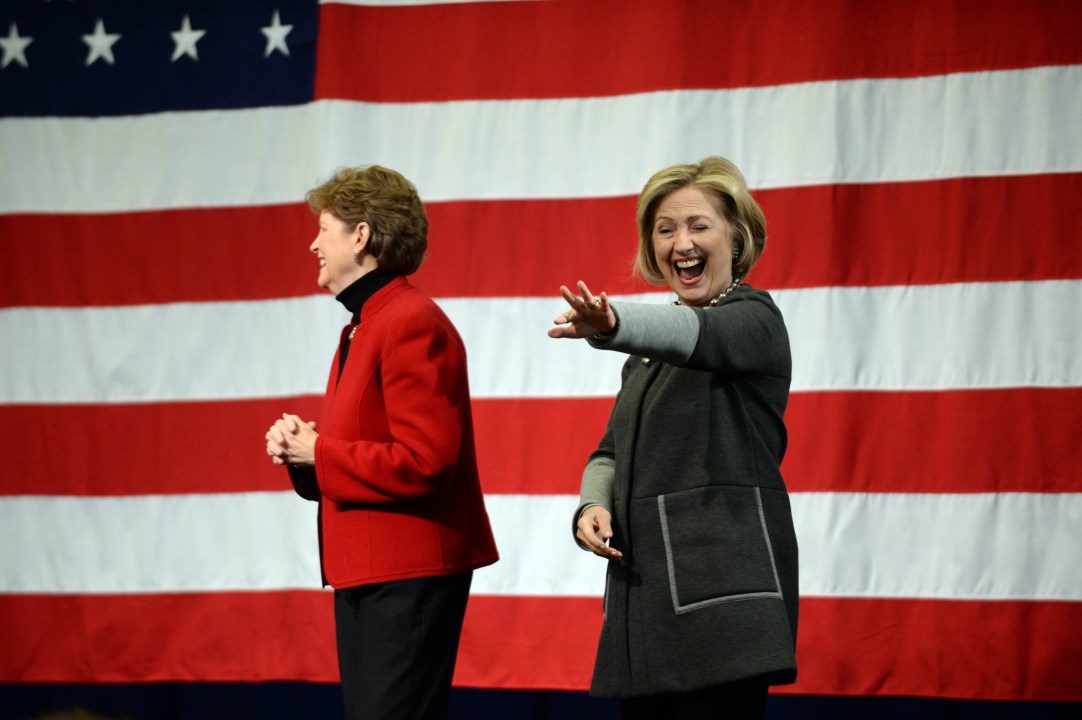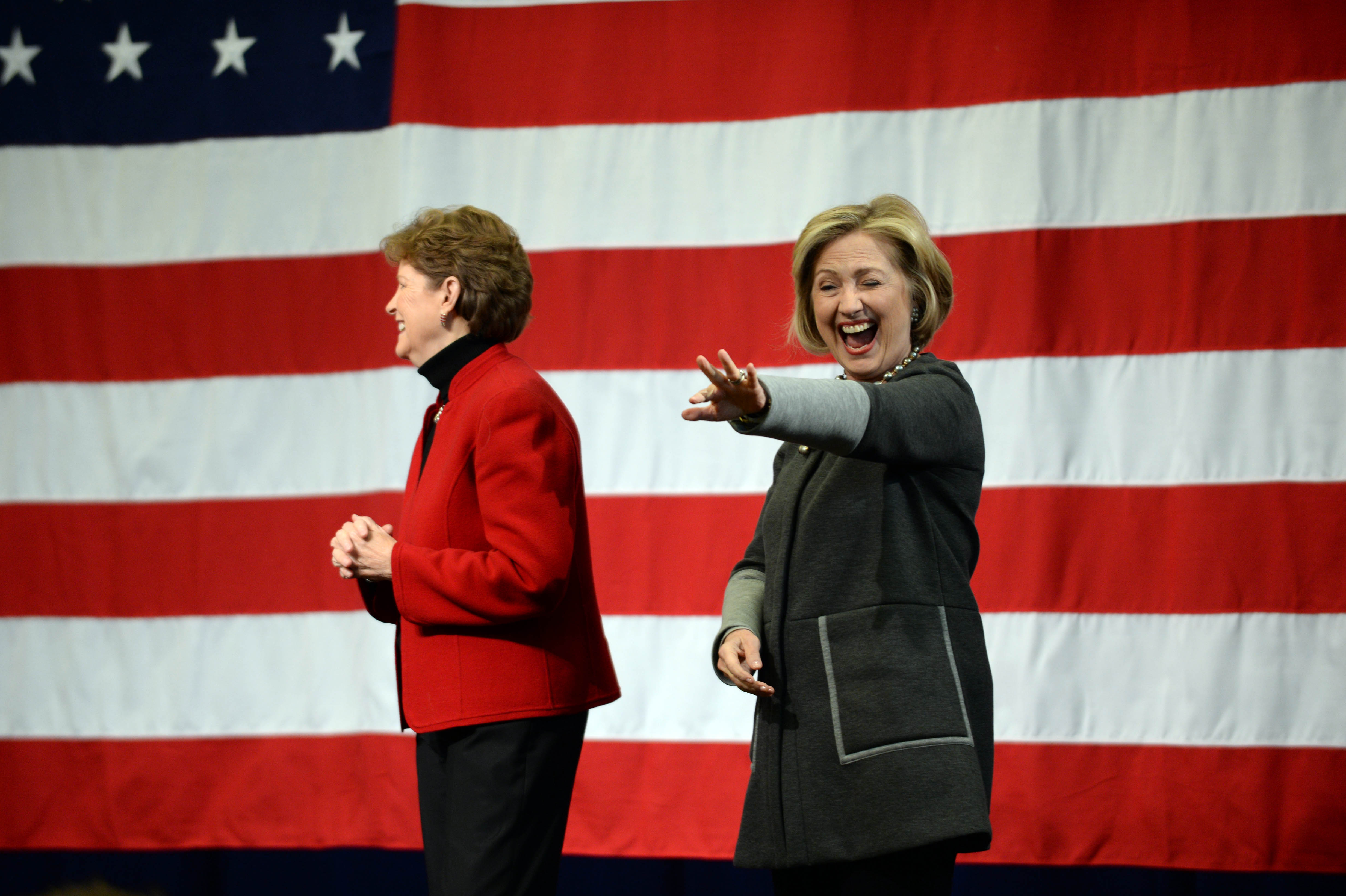Here we go again. We last travelled down this road eight years ago. Then, as now, Hillary Clinton was laying the ground for a run to the White House. Then, as now, she presented herself as the inevitable candidate. So inevitable that it was scarcely worth anyone’s time or effort to oppose her. Hillary was going to win and the Clintons have long memories.
We know what happened next. It turned out there was an alternative after all. One, moreover, who had opposed the Iraq War and who enjoyed the only personal characteristics that could plausibly defeat Hillary’s It’s time for a woman candidacy. One who could ask America to move on from the Clinton-Bush era and begin afresh.
And yet here we are again. Polls suggest it will be different this time. Clinton is hardly unsinkable but she begins from a position of such strength – in terms of experience, organisation, name recognition and money – that absent some dramatic episode of self-harm it is hard to see how she can be deprived the nomination this time. She begins, after all, with 70 percent support.
It might seem counter-intuitive to suppose that Barack Obama’s skin colour helped him defeat Clinton in 2008. But ask yourself this: would a white politician armed with identical beliefs and style really have managed to defeat the Clinton machine? Given his lack of national experience Obama’s candidacy was a bold one but it rested on the unspoken sense of a debt being redeemed, at least in part and certainly at last. A new era for a new America and proof that change – of a kind once reckoned unthinkable – was on its way. A matter of style, certainly, but also of substance.
Once an alternative had been proved viable, the argument for Hillary’s candidacy collapsed. If she was no longer the inevitable candidate, what was she?
Could the same thing happen again this time? That’s the question asked by the New Yorker’s Ryan Lizza this week. It is tempting to think this the kind of question asked chiefly by reporters thirsting for a story – any story! – to delay the inevitable acceptance that, this time, it really will be Hillary’s turn. It is that, at least in part, but it also demonstrates a general hankering for something new.
Hillary’s candidacy, after all, is in its way audacious. More than any campaign in recent history is sacrifices argument upon the altar of personality and identity. She is the candidate of the status quo and the candidate of how things used to be. The Democratic candidate closest to an interventionist foreign policy and closest to Wall Street too. The candidate of continuity dressed in a revolutionary pant-suit. But also, of course, the candidate to remind America of its happier 1990s. To go forward we go back even as we play the game in the same old style.
Or, to put it another way, if Hillary wasn’t a woman what could she plausibly base her candidacy? Sure, she has the experience – eight years in the Senate, four at the State Department – but she’d still just be another guy tossing his hat into the ring.
But it’s time for a woman and thus time for Hillary. (Elizabeth Warren, darling of the left, would be trespassing on territory Hillary means to keep for herself.) If not now, when? Vote for Hillary not for what she has done in the past or might do in the future but for who she is. It is, as I say, an audacious strategy not least in the manner in which it demands sceptics swallow their disagreements with Clinton and accept that the bigger, grander, sweep of history demands it’s time for a woman to hold the Oval Office.
Perhaps it is. If that was fine for Obama it’s sauce for Hillary too. Besides, isn’t she likeable enough? Maybe, though as Lizza demonstrates there’s a hankering for something different. A sense, too, perhaps, that a virtually-unopposed coronation would be somehow unseemly.
Lizza reports on rumblings of discontent on the left. He suggests that Martin O’Malley, former governor of Maryland, is considering his options. So too is Jim Webb, erstwhile Senator from Virginia. And so, as an irritant from the left, is Bernie Sanders, the socialist Senator from Vermont.
O’Malley is the kind of guy cast as President in second-rate television dramas. If it’s unfair to reckon him a Democratic Tim Pawlenty it’s not egregiously damning to do so. Jim Webb has many virtues and he might land some rhetorical – and policy – punches but he suffers from a painful, near pathological, reluctance to ask for your vote or your money. Besides, his constituency is the Scots-Irish working-class vote in the boondocks, a constituency that has always favoured the Clintons anyway. As for Sanders? Well, as Lizza says he’d be the Ron Paul of the 2016 campaign. Annoying but hardly threatening.
All of which means the search for a viable alternative continues. Hillary might be the candidate of the Democratic establishment and a trimming status quo but there’s less room for an insurgency than was the case in 2006.
Besides, there is another consideration: the electoral demographics. The clobbering Democrats suffered in the mid-terms earlier this month was a reminder that, though still well-placed on the presidential playing-field, the Democratic coalition needs to be carefully maintained. It needs some star power to bind it together. The older and whiter the electorate, the worse results are likely to be for Democrats.
Only Hillary, in this cycle, can provide that kind of mega-wattage. Who else can keep the African-American and hispanic constituencies on board? Who else, most of all, can win a landslide amongst women under 50? If that means perpetuating dynastic politics then so be it.
Winning three consecutive presidential elections is a tough enough business at the best of times. Hillary’s candidacy will, in one respect, be an admission the Democratic party lacks fresh blood and fresh ideas. It must also be by far their best shot at maintaining some power in Washington.
Identity politics twinned with a powerful sense of entitlement might not be an attractive combination but what else is there for Democrats? Don’t vote for Hillary because of what she might do; vote for her because of who she is. Vote for the candidate who can move the country on and take it back. A preposterous notion, perhaps, but there you have it. Unless, of course, some alternative emerges. But who and from where? This time it really does look like it will be inevitable.








Comments